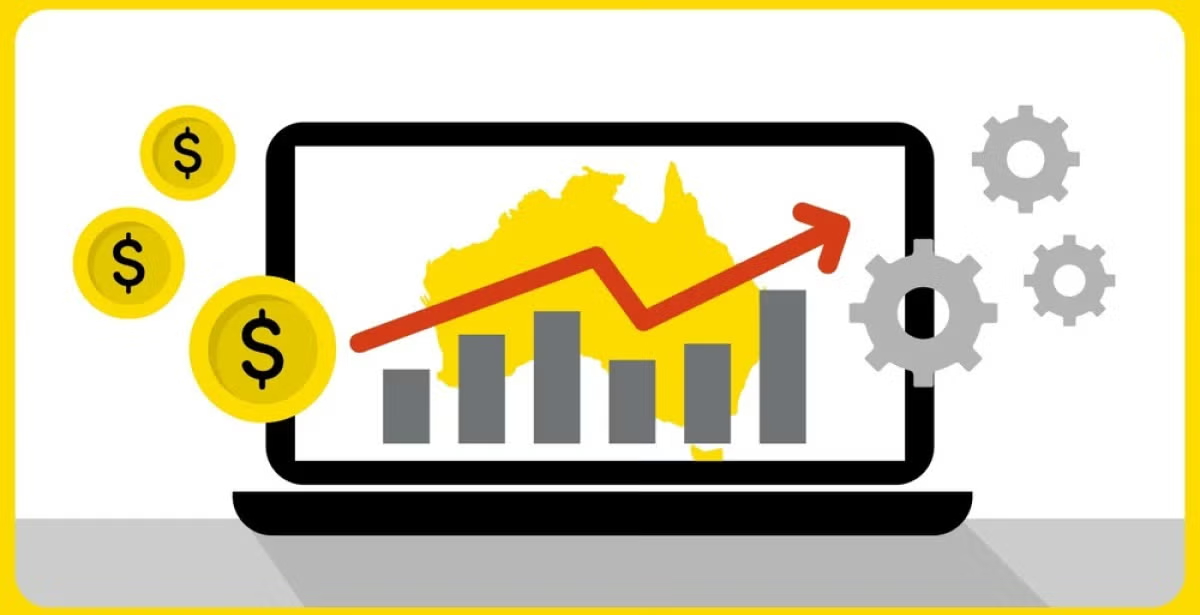The role of Chief Financial Officer (CFO) is one of the most senior jobs in the finance industry. It’s also an important role in the success of an organisation.
Officially sitting below the Chief Executive Officer (CEO), the CFO is a trusted advisor to the CEO and has a direct line of communication with the board. It’s a role that demands a broad, deep and contemporary understanding of finance and exceptional business leadership skills.
But it’s also a role that’s evolving.
Cloud computing has given small to medium enterprises (SMEs) access to the type of financial reports that were once the privilege of large companies. It’s also made it possible for Virtual CFOs to log in and provide advanced and comprehensive financial expertise to multiple businesses, rather than just one.
As the role of CFO changes, so does the career pathway to this prestigious position. Let’s take a closer look at everything you need to know about how to become a CFO.
How to become a Chief Financial Officer
The CFO is one of the highest-ranking executives in a company and takes holistic responsibility for all finance and accounting functions.
Some of those functions include overseeing the company’s budget, advising other executives on corporate finance and communicating with banks and insurers. CFOs also lead on investments, capital expenditure and acquisitions.
Most CFOs spend their entire professional career in finance, economics or work as financial analysts.
In Australia, CFOs are usually Certified Practicing Accountants (CPAs), Chartered Accountants (CAs) or Chartered Financial Analysts (CFAs).
- CPAs are qualified finance, accounting and business professionals with a deep and wide knowledge of accountancy.
- CAs are professional chartered accountants who work in various economic sectors, typically managing an entity’s finances, providing financial advice and helping out with money management.
- CFA is a highly valued and globally recognised investment credential.
The online Master of Applied Finance at UNSW is available for students looking to upskill and advance their careers towards the CFO position. If you’re already working in the finance industry, this program will allow you to further develop your finance knowledge, and gives you access to the latest thinking and current research in the field.
The Chartered Financial Analyst (CFA) credential is the professional standard of choice for more than 31,000 investment firms worldwide. It’s a highly valued and world-leading association of investment professionals.
The online Master of Applied Finance has been designed in line with the Chartered Financial Analyst (CFA) curriculum, giving you a strong grounding to pursue the CFA designation and helping you achieve your financial ambitions sooner.
Over half of the CFOs in Australia have worked overseas during their career – and almost all of CFOs that have worked overseas say that they’ve had a positive impact on their career progression. As an international credential, the CFA designation connects you to a network of more than 164,000 members worldwide and meets the professional standard of over 31,000 investment firms.
According to Payscale, on average, mid-career CFOs can expect to earn $156,000 as a base salary. That figure goes up significantly for more experienced CFOs, with a remuneration of anywhere between $175,000 to packages worth over $300,000.
Across Australia, Perth is the highest paying city for the role of CFO, closely followed by Melbourne in second place.
The skills you need to become a CFO
The CFO role requires specific technical and soft skills that you can develop through experience and postgraduate education.
Accounting
Most CFOs hold a CFA, CPA or CA membership since this role requires technical skills in accounting. But the secret to success as a CFO is to take your accounting skills to the next level.
Financial management is at the core of the CFO’s role – it’s about making strategic decisions for how their business will earn and spend money. These decisions are based on accounting reports, including profit and loss statements, balance sheets, cash flow statements and budgets. CFOs need to analyse, understand and interpret the findings of these reports to assess the financial health of an organisation.
Advanced abilities in accounting feed right into financial management as one of the key technical skills for CFOs.
Commercial and financial acumen
Having commercial and financial acumen is having the ability to take in relevant information, think about it strategically and then action it appropriately. It’s that last part about taking appropriate action that will give your CFO career a competitive edge.
Mentors can be instrumental in helping you pursue commercial and financial acumen. They often have experience in the challenges you’re likely to face, and they make excellent sounding boards for testing your plans.
You can also develop your commercial and financial acumen through postgraduate study. The online Master of Applied Finance at UNSW will extend your financial understanding and give you a wealth of knowledge, with courses on investments, international finance, corporate finance, private equity and venture capital.
Leadership
Leadership is the ability to influence and manage teams towards growth and organisational success. These are essential soft skills for CFOs who coordinate teams of employees to take actions based on their business acumen.
Strong communication is a large part of leadership and remains one of the most sought-after qualities by employers. Strong communication from leaders is about understanding instructions, acquiring new skills, making requests of team members, asking questions, listening, taking on feedback, and relaying information with ease.
Improving your soft skills in communication will directly benefit your leadership abilities, helping you influence and inspire teams towards a shared vision through effective communication and collaborative techniques.
With the online Master of Applied Finance at UNSW, you can navigate organisational communication and leadership in courses such as Corporate Finance, Ethics and Professional Standards, Financial Management, Entrepreneurship and Innovation and Business Economics.
Ethical responsibility
CFOs communicate directly to the CEO and board, which gives them a unique opportunity to uphold ethical responsibility.
Ernst & Young (EY) recently surveyed CFOs around the world and found that 64 per cent of respondents believed that finance should be the conscience of an organisation. Their feedback indicated that the CFO often plays a key role in implementing codes of conduct or ethical guidelines.
Ethics and Professional Standards is a core course in the online Master of Applied Finance at UNSW. This course describes why a high level of ethical standards is needed in investment management. It covers the Code of Ethics and the Standards of Professional Conduct and explores key features and the scope of the Global Investment Performance Standards (GIPS), why they were created, to whom they apply, and how to verify GIPS compliance.
The virtual CFO (VCFO): An emerging finance role for the future
Cloud computing applications have revolutionised the accounting function in SME businesses, giving them access to resources that were previously only found in much larger organisations – including CFOs.
The VCFO is an emerging finance role that frees CFOs from working with one company and allows them to offer a consultancy service to multiple businesses. This is a major benefit for organisations that can’t afford the average CFO salary of $156,000, and it’s creating more career opportunities for finance professionals.
CPA Australia’s magazine In The Black reports that in the United States, 10 per cent of all accounting firm revenue is now coming from virtual CFO services. But it’s about more than salaries. As a virtual CFO, you can apply your broader value and advise on strategy, structure, risks, operations, people and customers.
In The Black confirms that virtual CFOs provide the financial rigour that may be an essential ingredient in business success.
VCFO vs CFO - What are the differences?
The first major difference between a Virtual CFO (VCFO) and CFO is that virtual CFOs work with multiple businesses, while CFOs are generally full-time employees of a single business. In addition to keeping your work interesting, this can give you a lot of flexibility.
Using cloud computing, virtual CFOs can connect with a business in any location, at any time, which means you can work with businesses anywhere in the world.
The career path can also be shorter for virtual CFOs. The traditional CFO’s office is usually only available to those with more than 10 years of continuous experience in finance.
As a VCFO, you can customise your services to meet the organisation’s needs, adding more flexibility and efficiency by tailoring your VCFO services to the individual or business.
How to become a CFO with the online Master of Applied Finance at UNSW
The online Master of Applied Finance at UNSW is changing the future of finance by meeting the new demand for CFOs.
In as little as two years, you can gain contemporary and holistic knowledge to manage the financial function of firms in Australia and across the globe.
You’ll be studying with a university that’s globally ranked and recognised for finance. UNSW is first in Australia for accounting and finance subjects^ and in the top three for graduate employability*.
The online Master of Applied Finance at UNSW lets you study one course at a time, so you can manage your workload while instantly adding value to your career and organisation.
And best of all, you’ll be studying when you want, where you want. Just like a virtual CFO, you’ll have access to UNSW’s immersive online learning platform, so you can shape your studies to fit in with your career and lifestyle.
Unlock your value. Learn how you can become a CFO with the online Master of Applied Finance at UNSW. Download your program guide today.




